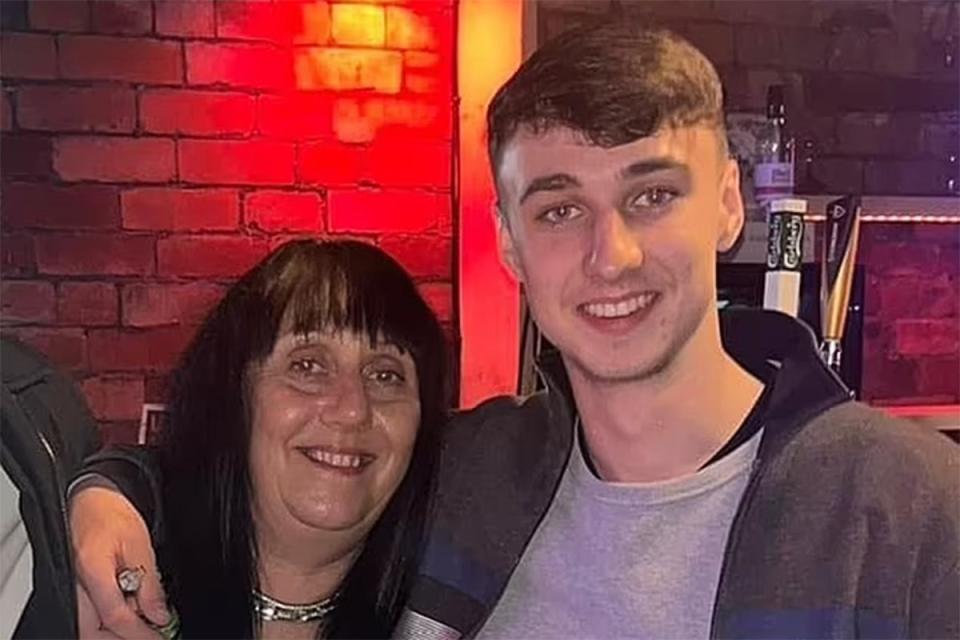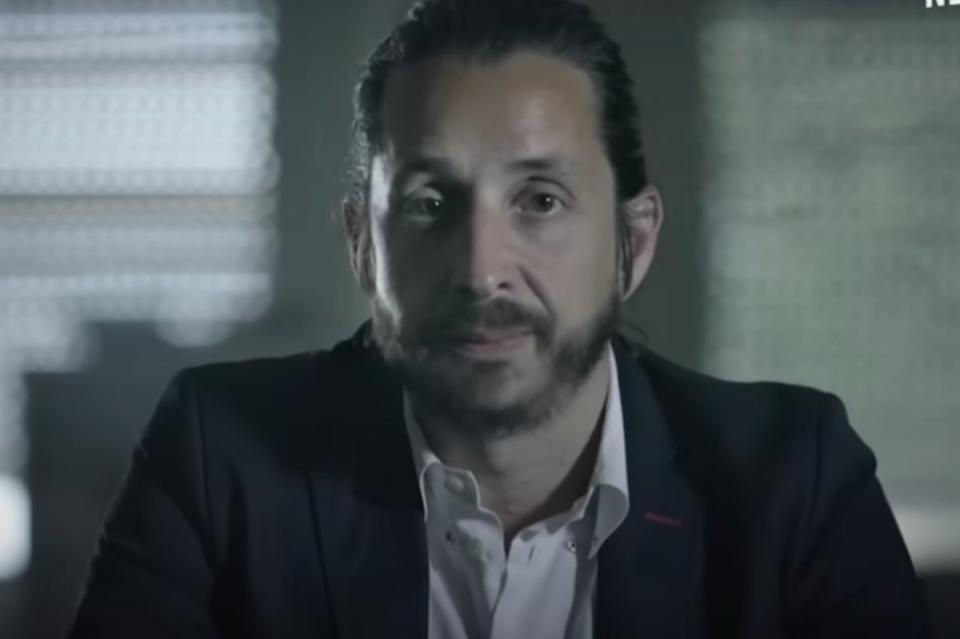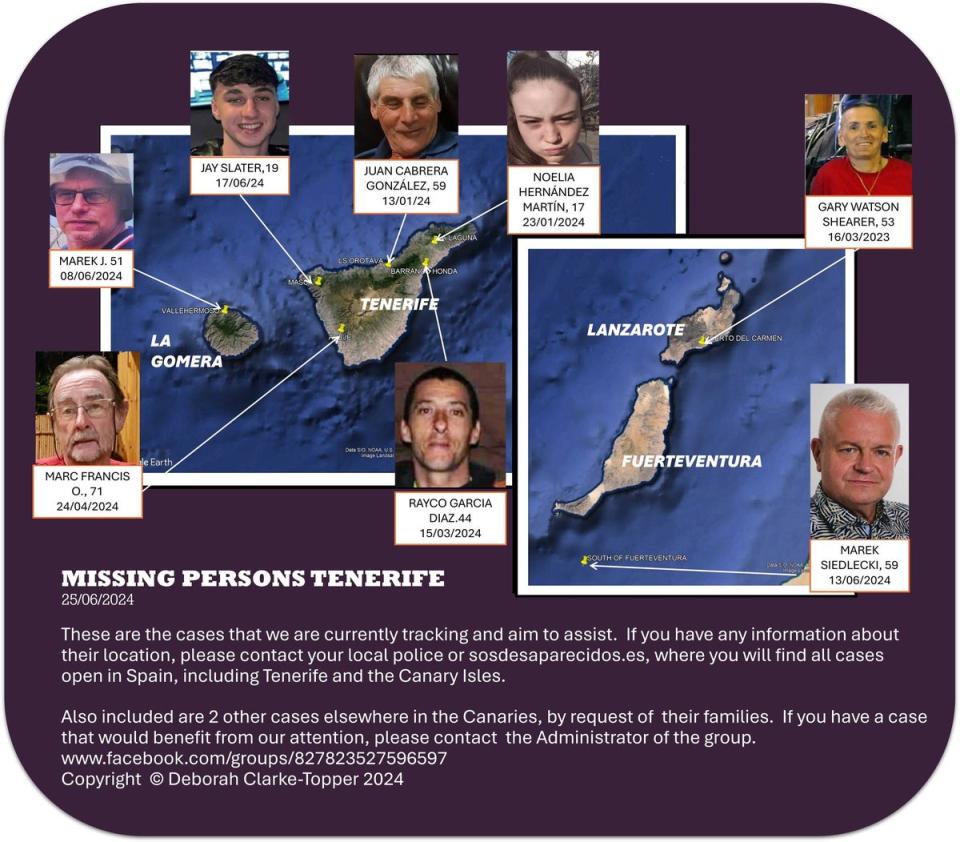Are TikTokers and Facebook sleuths drowning out actual leads in the hunt for Jay Slater?
Fake rumours of a body being found in the hunt for Jay Slater had spread like wildfire across Facebook, TikTok and other social media sites as thousands of users share disinformation.
A mocked up Facebook post from one of the Slater’s family inner circle was shared with the message: “Jay’s body has been found. Our hearts are with his family in these evil times, we’ve heard from locals it was the job of the Morrocans [sic].”
The mother of Jay’s best friend Rachel Louise Harg, who also set up the GoFundMe page to go towards search efforts, was forced to amplify the cruel prank as she distanced herself from it, insisting the official update group: “This isn’t me.”
The prank could cause a fatal distraction with days going by since Jay was last seen and friends of the teenager begged for people to keep up the massive search along the rocky hillsides of Tenerife full of treacherous ravines and cacti.
Another photo claiming to show a body found in Los Cristianos that went viral appears to have been taken in Iceland years ago.
Recently, Jay Slater’s mother Debbie made a post on a ‘discussions and theories’ Facebook page with 280,000 members attacking trolls mocking her son, pleading with them: “I really hope I am not taking my son home in a body bag.”

Private investigator Mark Williams-Thomas working with the family said he had been given access to dozens of “vile” messages they have been bombarded with.
He told The Independent from Tenerife: “There are people out there who have phoned up and said we’ve got Jay hostage, we’ve got Jay captive and they need to pay.
“There are some really vile people who have done that, they’ve tried to hack some of the social media sites, they’ve attacked some of the family. This is unacceptable. You’ve got a young lad who is missing and the family deserve respect. I would urge anyone on social media to think before you post.”
How rumours and conspiracy theories affect relatives, according to Guardians of Innocence
1. Increased Anxiety and Stress
The spread of unverified or false information can significantly heighten anxiety and stress among family members. The uncertainty about the truth can create an emotional rollercoaster, worsening the already traumatic situation.
2. Confusion and Disorientation
Rumours and conspiracy theories can generate confusion, making it difficult for relatives to discern between true and false information. This can lead to impulsive decisions and a waste of valuable time that could be dedicated to searching for their loved one.
3. Distrust in Authorities
Conspiracy theories often involve distrust in authorities and official procedures. This can hinder collaboration with law enforcement and institutions responsible for the search, further complicating the process of locating the missing person.
4. Social Isolation
The spread of false information can lead to social isolation, as family members may feel judged or misunderstood by those who believe in the conspiracy theories. This isolation can exacerbate emotional suffering and the sense of loneliness.
Julian Peribañez, who was part of the original private investigation firm Metodo 3 hired by Madeleine McCann’s parents Gerry and Kate to explore leads that weren’t being considered by Portuguese police, has noticed the parallels between the two high profile vanishings.
Now president of NGO Guardians of Innocence, which helps fight exploitation and sexual abuse, Mr Peribañez told The Independent: “The global media coverage and the proliferation of conspiracy theories on the internet deeply affected Madeleine’s parents.
“They were subjected to online harassment and faced multiple false accusations, which emotionally complicated their already traumatic experience.”

He added: “All this can’t be controlled nor censored as it is part of the public opinion and is one of the negative sides of the internet and social media, there is no filter, and under anonymity, some people tend to be extremely hurtful.”
Guardians of Innocence director Karine Nangia spoke out at the distraction of social media around the case.
She said: “Getting the public engaged is normal and useful sometimes, but it comes with the negative side of trolls and sick people.
“Madeliene McCann’s family have been persecuted by some parts of the public for years.
“It’s important to focus just on the possible sighting in Tenerife, as it is an island that has very limited space and possible sightings can be checked fast.”

But other social media influencers come to the search with the best intentions to find the missing teen.
Keen hiker and influencer Paul Arnott, 29, paid £400 for a flight to Tenerife when he heard from a Facebook post that friends or family were asking for help. Through his TikTok page “Down the Rapids” he gives his rapidly increasing 220,000 followers hourly updates on his own search.
He films himself following broken twigs and footprints in the sand, slipping down tight ravines and holes in the precarious landscape of isolated Rural de Teno park areas he says “drones and police dogs” can’t go.
In his latest posts Mr Arnott claims to know the correct location that Mr Slater’s phone last pinged from and heads towards it.
He has teamed up with Andrew Knight, known on YouTube as the Knightrider, who has been offering free rental cars for others looking to join the search.
He told The Independent of the dangerous terrain he has been scouring: “It’s rugged mountainsides, loose rocks that fall away underfoot, cactuses everywhere. It’s a disorienting landscape and also has extreme weather changes.
“At night the temperature drops to around 12 degrees Celsius, but with the wind chill and the thin air at altitude, it feels around 10 degrees.”

Deborah Clarke-Topper, an admin for the longstanding Facebook page Missing Persons Tenerife, helped share the original appeals directly from Jay’s family and friends.
She told The Independent: “The first thing I said is ‘Are you sure?’ He has only been missing a couple of hours. I passed on the information on how to properly report it to police - you don’t have to wait here in Spain.
“I did think it was very early to be getting worried at that time. I tried to get back in touch with his brother but the communication with them just exploded. I extended help but they didn’t take it up.”
On keeping her own group free from misinformation, she said:“I have had a lot of people sending messages with fake pictures and videos and asking them to be posted.
“I’ve taken stuff down, incorrect information even racist comments. It makes it much more difficult to keep what is true out there and push the other stuff to the side.
“I’m trying to keep an eye on it and keep the conversation sensible. I don’t use post approval but I use member approval so I can look through their comments and know who they are before they join.”
She urged people on social media consider that a man is missing before they post.
Ms Clarke-Topper said: “I know people are trying to help but there is so much noise it is hard to see what the truth is.”


